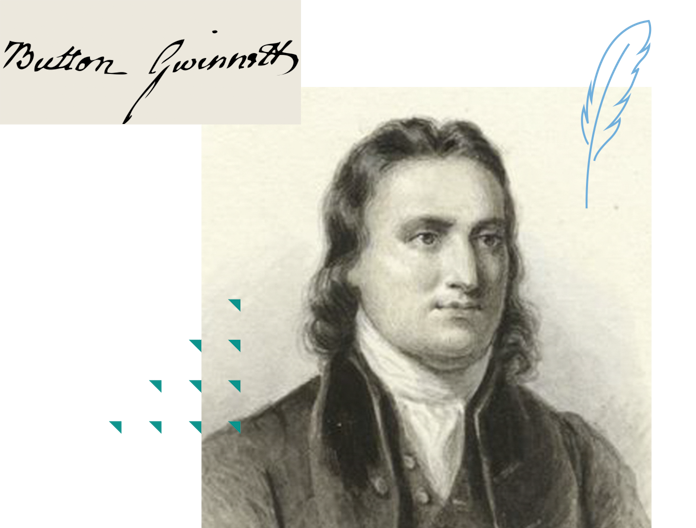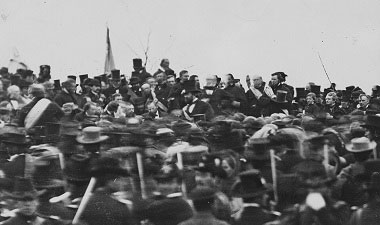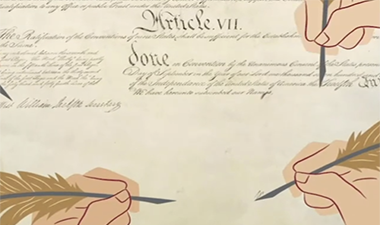Summary
Button Gwinnett signed the Declaration of Independence, and he was killed in a duel with a political rival in May 1777.
Button Gwinnet | Signer of the Declaration of Independence
02:15
Biography
Not all the signers of the Declaration of Independence were native-born Americans. Button Gwinnett did not arrive in the colonies until he was 30 years old. He was born in Gloucester, England, in 1735, the son of a minister of the Church of England. It is likely that he attended school in Gloucester Cathedral, although no record exists of his education.
His first known position was as an apprentice to his uncle, a greengrocer in Gloucester, but later he moved to Staffordshire where he was again apprenticed, this time to an ironmonger, that is, a merchant who sold tools and household implements. At the age of 22, he married Ann Bourne, the daughter of a greengrocer, and, in 1762, the couple emigrated to America. They settled first in Charleston, South Carolina, but, after a few years, the Gwinnetts moved to Savannah, Georgia.
Gwinnett was never particularly successful in his business ventures. In 1765, he opened a store in Savannah that failed. He then borrowed money to purchase St. Catherine’s Island and a great number of slaves, hoping to become a planter. He ultimately had to turn his property over to creditors, but, during his time on St. Catherine, he was befriended by a New Englander named Lyman Hall, who had moved to Georgia from Connecticut. It was Hall who spurred Gwinnett’s interest in politics. Despite never making his fortune, Gwinnett was well-liked, and he managed to become a Justice of the Peace. Soon afterward, in 1769, he won a seatin the colonial assembly.
Although financial difficulties consumed much of his attention over the next five years, his interest in colonial politics and in the relationship between the colonies and Britain did not fade. He had doubts that a successful resistance to a powerful empire could succeed. But, in 1775, Lyman Hall persuaded him to change his view and Gwinnett became a vocal advocate of colonial rights. With Hall, Gwinnett traveled to Philadelphia as a delegate to the Second Continental Congress. He took only a minor role in the great debate over independence, but John Adams was impressed with both Georgians. As Adams put it, “Hall and Gwinnett are both intelligent and spirited men, who made a powerful addition to our Phalanx.” Gwinnett voted for Lee’s resolution and signed the Declaration of Independence on August 2, 1776. At the end of the month, he returned to Savannah, hoping to be named commander of Georgia’s continental battalion. He was to be disappointed. His archenemy, Lachlan McIntosh, won the position.
The animosity between McIntosh and Gwinnett festered. In May of 1777, McIntosh went before the Georgia assembly and denounced Gwinnett as a “scoundrel and lying rascal.” In response, Gwinnett challenged McIntosh to a duel. On May 16, in a pasture near Savannah, the two men stood 12 feet apart and fired pistols at each other. Both men were wounded, but Gwinnett died on May 19 from a gangrene infection of his wound. He was only 42 years old. McIntosh was charged with murder but acquitted at his trial.








